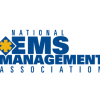The whole discussion about CISD and PTSD threatens to destroy the simple and normal human activity of connecting with others, talking and telling stories after tough calls.
Most of us who work in 911 systems have experienced tough calls—the ones that make us gasp, weep, wonder and question the existence of any sort of compassionate order in the universe. Calls like Sandy Hook, the bride killed in the car crash while still dressed in white, the 3-year-old backed over by his mother, the elderly woman beaten and raped, the co-worker struck by a truck, the 12-year-old found hanging by her father’s tie—all create painful memories.
These calls seem senseless in that they do not fit our notions of an ordered and just world. They haunt us in that we do not forget them and find ourselves thinking about them at odd times. They leave us sad and painfully aware of the inevitable tragic nature of life. They leave us wanting to run home and hug our kids. And in their aftermath, we may find ourselves swearing, kicking a door, having a drink or two or looking for a different career. But they do not give us the mental illness called PTSD.
“An abnormal reaction to an abnormal situation is normal behavior,” wrote psychiatrist and holocaust survivor Viktor Frankl. It would be abnormal not to be sad, angry, frustrated, questioning and changed by these tough calls. Why a small minority of people develop PTSD is still not fully understood, and there are many confounding factors. But—and this is what everyone in emergency services needs to get—the research clearly shows that an event and experience alone does not cause PTSD. No matter how traumatic and horrible the call, the vast majority of rescuers who respond will not develop PTSD. This is where the current debate about debriefing comes in.
Debriefing grew from the simple notion that talking about tough calls is better than not talking. It emerged at a time when it was macho not to talk, when acting like difficult calls didn’t faze you was expected. People initially welcomed debriefing because it rejected the macho thinking and granted them permission to talk about the tough calls. But unfortunately, the notion of talking-is-better-than-not-talking and debriefing got mixed up with the emergence of PTSD. The debriefing advocates said debriefing prevented PTSD and turned it into a formal process that was often mandated and became much more than just talking.
Eventually research showed that debriefing doesn’t prevent PTSD. Now many EMS agencies have stopped the process altogether, leaving providers and managers confused about whether talking after a tough call is good or bad. Are there benefits in talking for the majority of providers who will never develop PTSD? Should we return to the old macho days?
We are creatures who remember and try to make meaning out of what we see and experience. When we go on a call, it is human to look for ways to make sense of it and fit it into our view of the world. Most of our calls fit nicely into rational explanations. But the tough calls don’t fit: They mess with our prevailing view of what’s right and good and consequently sit heavy on our memory shoulders. Yet how heavy they sit depends on what we do with the memories.
Everything we are learning about carrying difficult experiences and memories suggests that talking and connecting with others lightens the load. Talking with each other and with people who listen and care about us helps to normalize our reaction. It aids us in recognizing that we are not nuts—that it was the situation that was nuts. To feel floored by a heavy call is normal and human. Talking helps us understand that and is relieving and lightening. Burdens shared are burdens lightened.
It’s time to see through the CISD and PTSD debates and return to what is normal and common sense and create organizational cultures that simply encourage connecting and talking to each other.
John Becknell is the founding publisher of Best Practices and a consultant and partner at SafeTech Solutions.












